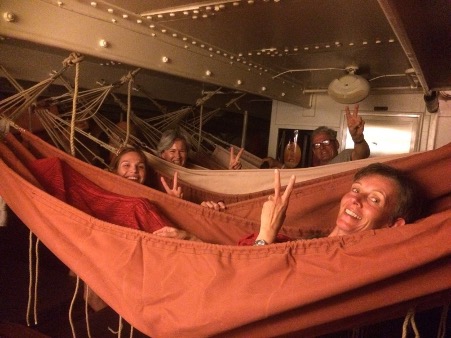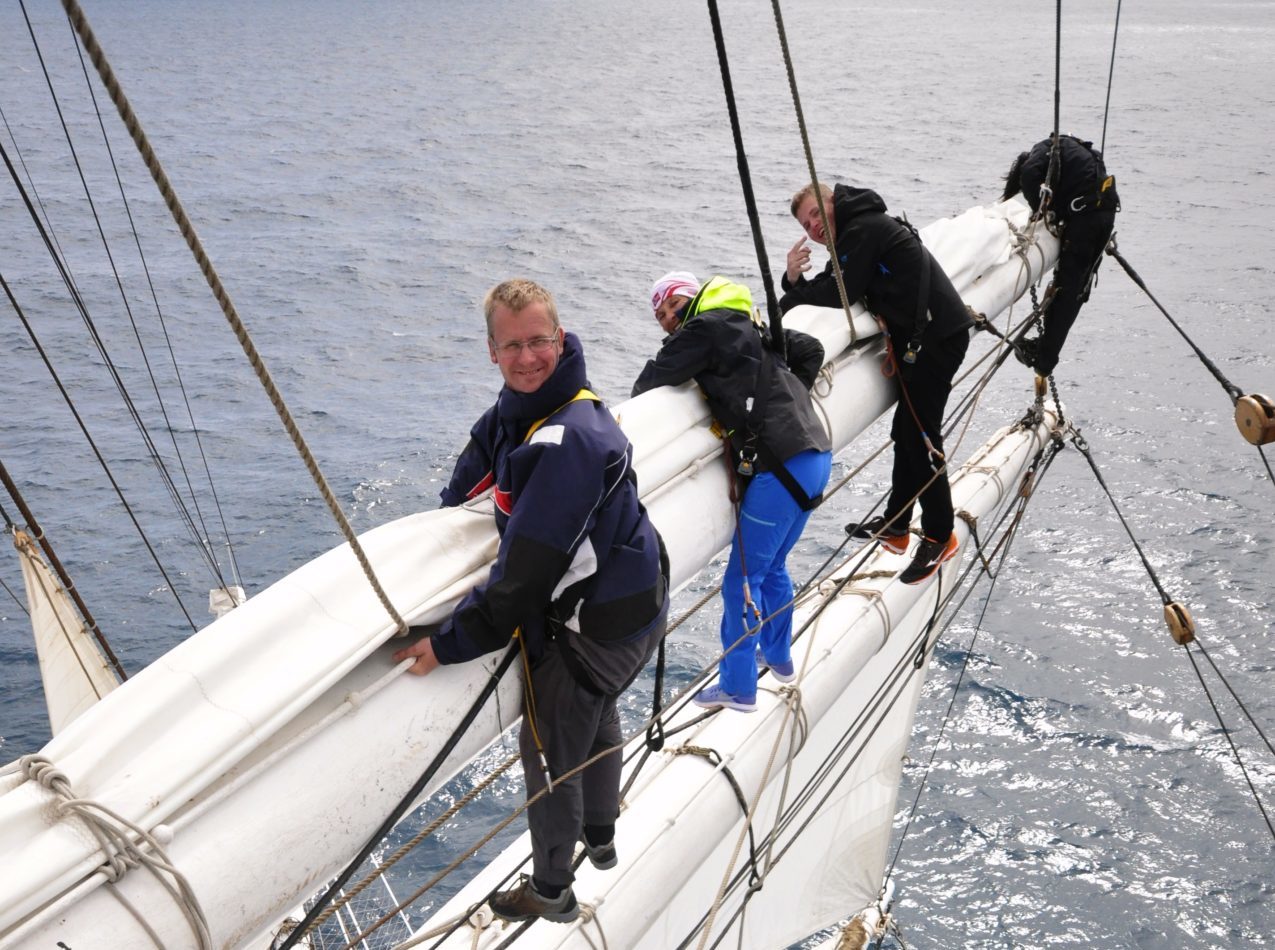Registration
All participants must register with the Statsraad Lehmkuhl, a link to this form will be sent by email.
Travel and visas
NERSC will book economy travel for all students, for arrival into Maputo, Mozambique and departure from Cape Town, South Africa. In advance of you being contacted about booking flights, please investigate possible flight/travel options that you would like to take for your trip, remembering that only economy class travel will be covered.
You are responsible for checking any visa requirements for each country and procuring any necessary documentation. Please contact the course organisers if you need any documentation in order to obtain a visa, e.g. proof of onward travel.
The ship will leave Maputo, Mozambique on 3rd January 2023 and arrive in Cape Town, South Africa 13th January 2023. Specific departure and arrival times of the boat will be updated in due course.
It is mandatory to bring a passport that is valid at least until six months after the trip has ended.
Vaccinations
To come on board the Statsraad Lehmkuhl, all participants must be fully vaccinated, with two vaccinations plus a booster. You will need to show proof of your vaccination status.
The current requirements (summer 2022) for Mozambique and South Africa are:
For entry into Mozambique there is no requirement for a PCR test upon entry if you can present proof that you have been fully vaccinated. If unvaccinated, then the Mozambican authorities require a negative PCR test taken at least 72 hours before arrival. Travelers are also encouraged to contact their airline for any other requirements they may have for documentation.
If you are fully vaccinated, you do not need to take a coronavirus test to travel to South Africa. You will need to present your vaccination certificate during travel and on arrival.
Equipment/what to bring
For the online and on board course: you will need a dedicated computer/laptop for the online course, that you are able to download the SEAScope tool on to. On board, your own laptop will likely be very useful.
There is limited space on board for personal items, so only bring those that are highly necessary. You will be assigned a locker with keys and a chest for your personal belongings. We strongly recommend that you pack your things in soft luggage (i.e. not a hard suitcase) or bags than can easily be stowed away during the voyage. Please avoid bringing large and bulky suitcases (see Life on Board to have an idea of the ship space and layout).
Essential items to bring:
- A sleeping bag and (and pillow if needed)
- Warm windproof clothes for cold nights on deck. It gets quite windy and colder than expected.
- Comfortable and solid work clothes
- Good quality rain gear: waterproof jacket and pants
- Good shoes: sneakers/trainers and waterproof shoes/rubber boots
- Gloves
- Towel and toiletries
- Swimwear
- Leisure wear
- Camera
- Personal medications, contact lenses etc. for the whole period.
- Passport/visas/documentation
- Bring seasickness tablets as needed, but be aware that those who use patches for seasickness, or other types of seasickness medicine marked with a warning triangle, will not be allowed to climb the rig.
Life on Board
You will be a fellow sailor (rather than just a passenger) on Statsraad Lehmkuhl and an important part of the crew. Together with an experienced and friendly permanent crew, you will perform all the necessary tasks needed to sail – without your efforts, it is actually not possible to sail a ship the size of Statsraad Lehmkuhl. Our partner, the University of Bergen, are also teaching students on board the ship and have put together a video to show you around:
Accommodation in a hammock
You sleep safely and well in your hammock, side by side with your fellow sailors. Some people are a little skeptical about replacing their bed with a hammock, but you will soon discover that this is a great way to sleep, especially when the sea is not so calm. Then the hammock works like a gyro and limits much of the rocking. You need to bring your own sleeping bag and pillow, mattresses are available in the hammocks.

Being part of a watch
As a fellow sailor, you become an important part of the crew for operating and sailing the ship. The sea watch scheme has long traditions and is a natural part of life on board. Immediately after boarding, all fellow sailors are divided into three different watch teams; red guard, white guard and blue guard. This will be your regular "gang" on the trip.Together with your watch team, you have regular four-hour sea shifts twice a day. All tasks are performed under the guidance of our friendly and experienced crew.
The times for the sea guards are distributed as follows:
Red watch at 12-16 and 24-04
White watch at 04-08 and 16-20
Blue watch at 08-12 and 20-24
At each shift change, both incoming and outgoing guards muster (meet). This is necessary to ensure that all fellow sailors are present and well. It is both social and enjoyable to walk guards together, and the unity in the group is often strong. But of course there will also be plenty of time to talk, eat good food and enjoy all the experiences that the ship and the sea offer.
Meals on board
You can look forward to very tasty and nutritious meals by our good chefs. Included in the price are breakfast, lunch and dinner, as well as bread for the security teams at night. Remember to state about allergies or special requirements for your diet when you buy a ticket.
The first meal served on board is dinner on the day of departure, if the departure takes place after 12pm. When the ship is at sea, the following times apply for meals:
- Breakfast at 07:20-08:30
- Lunch at 11:20-12:30
- Dinner at 17:30-18:30
Safety
On a ship, safety is paramount at all times. Knowing and respecting the ship's safety rules places no limits on all the great experiences on board. On the contrary, knowledge of the safety rules will give you the security you need to participate fully in the many different activities on Norway's largest sailing ship.
Internet and phone coverage
As one approaches the open sea, normal phone signal and internet coverage disappears. For the One Ocean voyage there will be internet on board but this is currently still being tested so we do not know how much capacity will be available for students yet. In any case, it is likely the internet will not function in rough seas when the ship tilts. Therefore it is best to limit your expectations of any internet connection and see this as a rare opportunity to "log off" with a clear conscience! The captain and commander have daily contact with the administration on land, via satellite connection.
Climbing the rig

Everyone who is medically and physically cleared will have the opportunity to climb up the rig, if they wish. Before climbing up for the first time, you will undergo a simple safety check with the ship's experienced duty officer. The check is done by hanging on to both arms, i.e., carrying your own body weight, for a few seconds. The duty officer will give you further instructions on the safety rules for rig entry. On your first trip in the rig, you will be accompanied by the crew who make sure that everything goes smoothly. On most sailing trips, there are several different opportunities to enter the rig.
Important safety rules for climbing the rig:
- You may only enter the rig when you are asked to do so, or after obtaining permission from the officer on duty.
- It is strictly forbidden to climb the rig if you use medicine with a "warning triangle".
- Always remove any loose objects you have in your pockets before climbing the rig.
Climbing the rig is a fun challenge, and for many is a highlight of the trip. Those who, on the other hand, are notinterested in rig climbing still make up an equally important part of the crew as the others, as there are plenty of other tasks and experiences on board a large sailing ship.